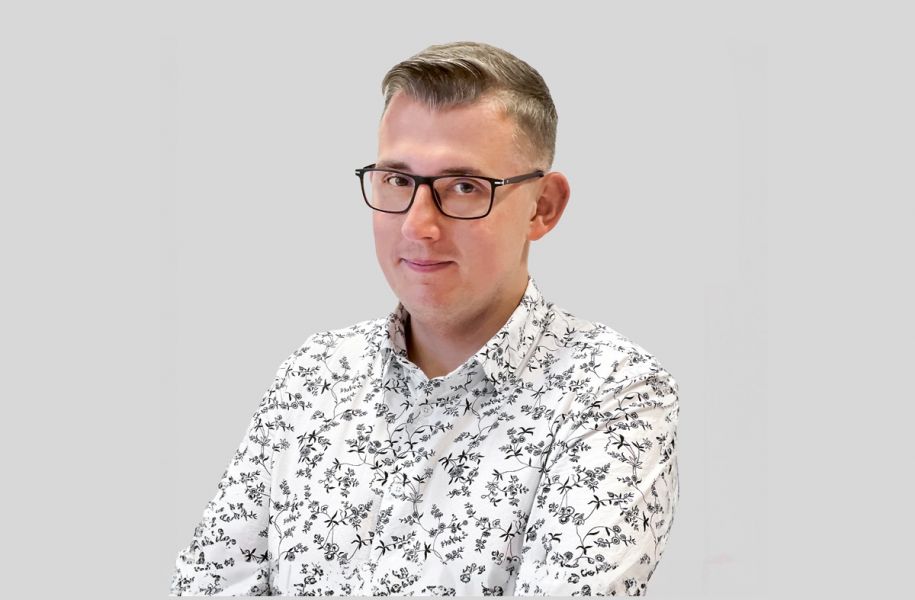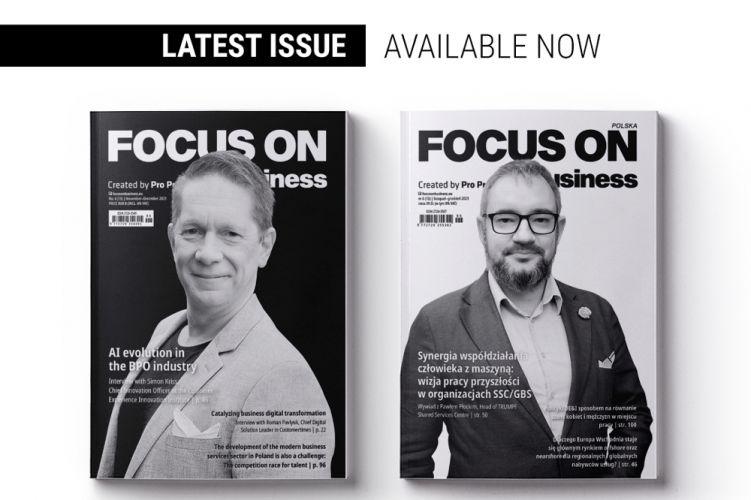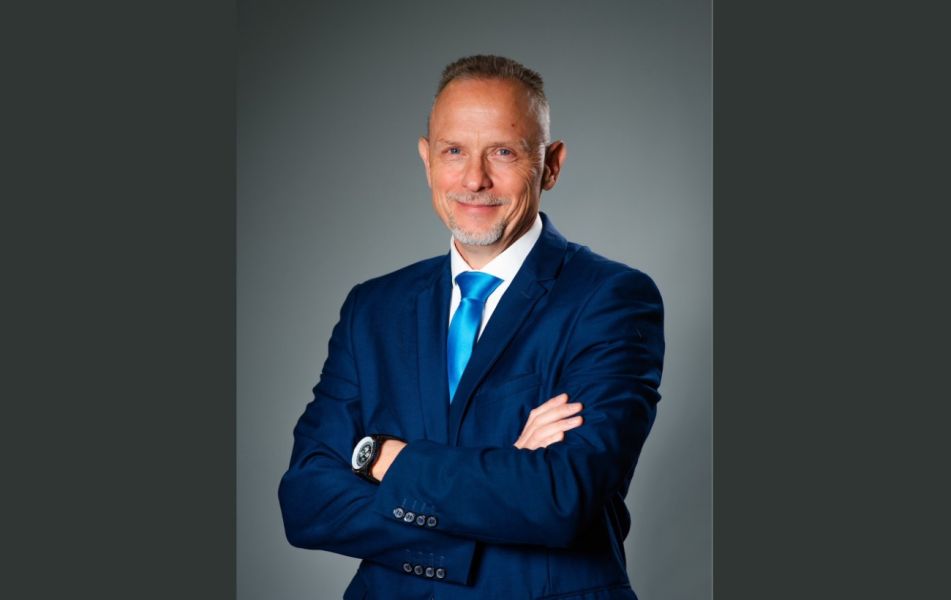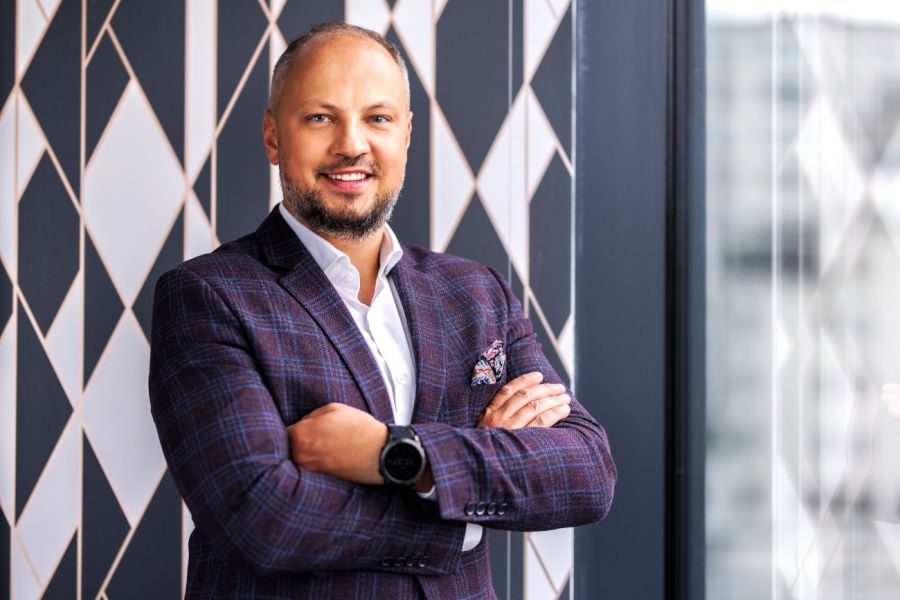Elbląg – a hub for initiatives in the Baltic Sea region

Interview with Marcin Żuchowski, Director of the Secretariat of the Association of Polish Communes Euroregion Baltic in Elbląg.
FOCUS ON Business: Please tell us more about the mission, goals and tasks of the Association of Polish Communes Euroregion Baltic.
Marcin Żuchowski, Association of Polish Communes Euroregion Baltic: The Association of Polish Communes Euroregion Baltic (usually known in Polish as STG ERB, or Euroregion Baltic) is a small organisation with a great tradition and potential. On the one hand, we are a non-governmental organisation that brings together 40 local governments and was established to support transnational cooperation of local governments, but on the other hand we act as a cooperation platform for various beneficiaries from Poland and abroad who would like to act in the supra-regional and international sphere.
Over the years, the STG ERB has developed mechanisms and methods to support cross-sectoral cooperation of all types of entities located in two voivodeships: Warmia-Mazury and Pomerania, facilitating cooperation of local entities with their cross-border counterparts as a part of the transnational cooperation. And this is what we focus on in our daily activities – connecting and trying to initiate or co-create new initiatives. We strive to connect and act as a platform for the supra-regional integration of the stakeholders. We are committed to bringing measurable results from the multilateral cooperation, particularly in the form of targeted project initiatives and measures in our municipalities and local communities.
For 26 years now, since our organisation has been established, its guiding idea has been the motto: "Closer to cooperation, the idea of self-government, society and the Baltic Sea", setting the strategic goals of its activities.
We focus on representing and presenting the common voice of our members and partners with third-party organisations as a part of international and local governments cooperation in the Baltic Sea region, but also in Europe as a whole. Thanks to the efforts of our Secretariat team, the member communes are able to speak with one strong voice with respect to the external environment and foreign partners by initiating or participating in international activities and projects.
By promoting the cooperation with the Association, we designate cooperation between the communes of the Pomerania and Warmia-Mazury Voivodeships with the external environment through strategic networks. These include both, temporary networks (Task Groups, project consortia) and permanent ones (e.g. the existing Euroregion Baltic network – connecting 8 regions from 4 countries, of which we are co-founders), established to solve a specific task, challenge or problem, but also to promote and disseminate certain values.
What projects implemented by the Association in Elbląg have produced the most interesting results? Which of them have contributed most to im proving the quality of life of Elbląg residents?
Many international projects taking place in the Elbląg Municipality have been carried out jointly with the STG ERB, with the participation of the local government and the entities and institutions operating here. They include not only the joint acquisition of pre-accession funds but also those from European Union development measures, including the following programmes: Interreg Baltic Sea Region, Interreg South Baltic, Horizon, Life Programme or Norwegian, Swiss or other funds.
Trying to classify these, we could divide them into several sectors – from work with the youth, through environment protection, support for creative and innovative entrepreneurship, to transport and tourism. Here we are talking, for example, about empowering civic engagement, such as projects SB YCGN, LYC SB, Indigise implemented with the participation of the Elbląg Municipality or its representatives, enabling young people not only to discover the living, working and business conditions of their peers in Lithuania, Denmark and Sweden. These projects have also increased their knowledge about self-governance, civic engagement and have developed their competences and provided opportunities for further development. They have shown the will to increase the participation of young Elbląg citizens in co-deciding. They permanently introduced new practices in the form of "round tables", through which young people were able to co-decide on issues important to the younger generation.
Another example is the TourAge project supporting tourism of senior citizens in 9 Baltic Sea countries, enabling the city's local offer to be better adapted to the needs of this age group.
From the business point of view, the most interesting projects may be the CTCC project or even Engage! The CTCC is a typical local business support project co-funded by the European Regional Development Fund (ERDF) under the South Baltic Programme 2014-2020, aiming to increase the innovation capacity and performance of innovative products, services, processes or market portfolios of small and medium-sized enterprises (SMEs) in the traditional sector.
Together with creative sector (design, architecture, advertising, software and games) our staff worked for the target group from the South Baltic Sea Region (SBSR) covering the coastal regions of Denmark, Germany, Lithuania, Poland and Sweden contributing to Blue and Green Growth in the Region and the EU. One of the outcomes of the project was the creation of ad hoc cooperation bet ween traditional and creative companies from the Warmia-Mazury region, but also from the Baltic Sea region, which included the preparation of three prototypes of new canoes with special graphics targeted at the youngest. The canoes were then donated to MOSIR Elbląg and are still being used by the youngest residents of Elbląg.
Another example is the ENGAGE! project. This was a project aimed at nongovernmental organisations from the Pomerania and Warmia-Mazury regions, involving more than 100 organisations, under which we have encouraged those who want to be open to international cooperation with the participation of partners from the Baltic Region to join international consortia. We have invited inexperienced associations and third sector organisations to cooperate with other local and international entities and demonstrated them the best practices/ techniques/ tools to build strong local com munities, which has resulted in new initiatives including those involving Elbląg entities. e.g. the “Green Up” project involving the Elbląg Technology Park.
Which of the Association’s ongoing or planned initiatives have the potential to increase the attractiveness of Elbląg as an investment destination?
One such example is the SB SeaMan – South Baltic Sail and Water Education Opportunities seed fund project, which is being implemented in international partnership with the Elbląg Seaport Autho rity and the Nonpublic Educational Institution Academy of Water Sports "Group" Marcin Trudnowski. This initiative has evolved from a small consortium of 5 organisations from 3 countries into a large initiative involving a partnership of more than 15 institutions, including academic institutions, tourism associations, local authorities and businesses from 5 countries. The project is currently being prepared for submission to a new upcoming competition.
The overall objective of the project is to develop strong partnerships of South Baltic institutions and organisations focused on the development of sustainable water tourism. They will work together to develop and test methods to introduce innovative and socially inclusive solutions in the field of water and nautical tourism, especially in the area of education, raising awareness that will enable the establishment of conditions for the development of sustainable water tourism services in the region.
The main objective is to strengthen the potential of water economy in the participating regions through better use and management of inland and sea water resources, around which we want to develop social, economic and other activities.
What is the greatest challenge in implementing the Association's initiatives in Elbląg? Are there areas of your activity that you plan to strengthen in order to contribute even more to the better functioning of the city and attracting new investors?
In fact, the most important challenge currently faced by our Association in Elbląg is not to obtain funds for project implementation, but to encourage individual beneficiaries (including entrepreneurs), partners or new entities to develop international and project cooperation. The collaboration should be based not only on the immediate needs of one party, but to look at problems from a broader perspective: of the region, the country or the entire area of the Baltic Sea, not to mention Europe as a whole.
It is this internal blockade and flawed thinking that holds back the potential of local decisionmakers to present their problems, challenges to the outside world and at the same time prevents them from trying to solve them in a broader way with the support of someone from the “outside”. After all, our local beneficiaries do not have to reinvent the wheel and can seek support from already existing expertise and experience, while trying to disseminate the already developed and proven solutions by transferring and adapting them to their own needs. Often the disbelief of beneficiaries in their own capabilities and resources or the lack of knowledge of where to get the assistance (even if only in finding appropriate and proven foreign partners) is a strong blockade to taking further steps on the international arena. Elbląg's local, innovative solutions or initiatives remain at this level only, because we are afraid to promote or to invest in them properly.
Another such area is the financial barrier, known as the 'own contribution', which must be made by an entity wishing to implement projects with external funding.
This also involves, in the case of projects based on the reimbursement principle, a waiting period for the invested funds. Often, local entrepreneurs or other entities prefer to invest their own money at a given point in time rather than benefit from 6080% deferred funding (in 6 to 12 months).
One of the most important areas we are currently working on to help strengthen the local government and future investors is building a sustainable city based on RES, closed loop economy and nature-based solutions. We aim and expect to work together with local stakeholders in broad national and international cooperation to build a globally resilient, yet independent and prosperous city that is not only a place for various activities, but a place for healthy and peaceful living based on sustainability and green governance.
Therefore, in our next steps, we will strive to better communicate and educate local beneficiaries about these values, who will be closer to the Baltic Sea Strategy, the area of which is an ideal environment of development and common interest for all of us.
Thank you for the interview.
This article comes from magazine:
FOCUS ON Business #13 November-December (6/2023)
 Check the issue
Check the issue








